
Paradise Unveiled: Puerto Viejo, Costa Rica
Nestled on the Caribbean coast of Costa Rica, Puerto Viejo is a vibrant town that pulses with a unique blend of Afro-Caribbean culture and stunning natural beauty. Imagine a place where the rhythm of reggae fills the air, where the beaches are pristine, and the jungle is just a stone's throw away. Puerto Viejo offers a laid-back yet lively atmosphere that is perfect for both adventurers and those seeking relaxation. Puerto Viejo is renowned for its breathtaking beaches, each with its own charm. Playa Negra with its black sand, Playa Cocles with its surf-friendly waves, and Punta Uva, often touted as one of the most beautiful beaches in the world. The clear waters are perfect for snorkeling, revealing a vibrant underwater world teeming with marine life. For surfers, the Salsa Brava reef break is a must-visit, offering some of the best waves in the Caribbean. The town itself is a mosaic of colorful buildings, open-air restaurants, and lively bars. The local cuisine is a tantalizing mix of flavors, with dishes like rice and beans cooked in coconut milk, fresh seafood, and tropical fruits. Don't miss the chance to try a patty, a local pastry filled with spicy meat or vegetables. The nightlife in Puerto Viejo is equally vibrant, with live music, dancing, and a welcoming community that makes every visitor feel at home. Beyond the beaches and the town, Puerto Viejo is a gateway to incredible natural adventures. The nearby Gandoca-Manzanillo Wildlife Refuge offers hiking trails through lush rainforests, where you can spot exotic wildlife like sloths, monkeys, and a myriad of bird species. The Jaguar Rescue Center provides a unique opportunity to learn about and see rescued animals up close. Whether you're exploring the depths of the jungle or lounging on the beach, Puerto Viejo promises an unforgettable experience.
Local tips in Puerto Viejo
- Rent a bike to explore the town and nearby beaches easily.
- Visit the local farmers' market for fresh produce and unique souvenirs.
- Try the local dish 'rondon' - a delicious coconut milk seafood stew.
- Bring insect repellent to protect yourself from mosquitoes, especially in the jungle areas.
- Check out the local calendar for cultural events and festivals happening during your stay.
Paradise Unveiled: Puerto Viejo, Costa Rica
Nestled on the Caribbean coast of Costa Rica, Puerto Viejo is a vibrant town that pulses with a unique blend of Afro-Caribbean culture and stunning natural beauty. Imagine a place where the rhythm of reggae fills the air, where the beaches are pristine, and the jungle is just a stone's throw away. Puerto Viejo offers a laid-back yet lively atmosphere that is perfect for both adventurers and those seeking relaxation. Puerto Viejo is renowned for its breathtaking beaches, each with its own charm. Playa Negra with its black sand, Playa Cocles with its surf-friendly waves, and Punta Uva, often touted as one of the most beautiful beaches in the world. The clear waters are perfect for snorkeling, revealing a vibrant underwater world teeming with marine life. For surfers, the Salsa Brava reef break is a must-visit, offering some of the best waves in the Caribbean. The town itself is a mosaic of colorful buildings, open-air restaurants, and lively bars. The local cuisine is a tantalizing mix of flavors, with dishes like rice and beans cooked in coconut milk, fresh seafood, and tropical fruits. Don't miss the chance to try a patty, a local pastry filled with spicy meat or vegetables. The nightlife in Puerto Viejo is equally vibrant, with live music, dancing, and a welcoming community that makes every visitor feel at home. Beyond the beaches and the town, Puerto Viejo is a gateway to incredible natural adventures. The nearby Gandoca-Manzanillo Wildlife Refuge offers hiking trails through lush rainforests, where you can spot exotic wildlife like sloths, monkeys, and a myriad of bird species. The Jaguar Rescue Center provides a unique opportunity to learn about and see rescued animals up close. Whether you're exploring the depths of the jungle or lounging on the beach, Puerto Viejo promises an unforgettable experience.
When is the best time to go to Puerto Viejo?
Iconic landmarks you can’t miss
Hot Rocks
Experience the Caribbean vibe at Hot Rocks in Puerto Viejo: fresh grilled dishes, live music, and a lively atmosphere await!
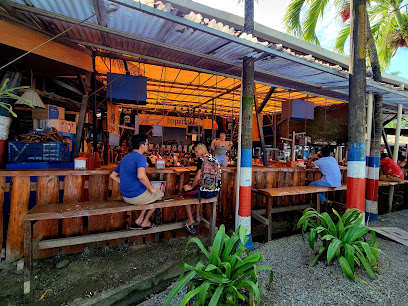
De Gustibus Bakery - Puerto Viejo
Experience European-style baking with a Costa Rican twist at De Gustibus Bakery in Puerto Viejo. Fresh pastries, savory dishes, and delightful ambiance await!
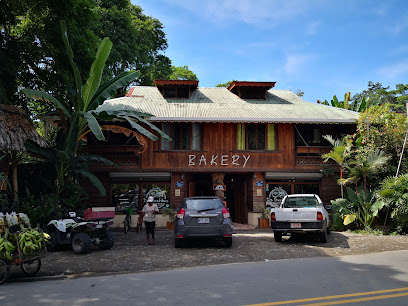
Bread & Chocolate
A Puerto Viejo favorite serving fresh baked goods, chocolate desserts, and homemade meals with local ingredients. Vegetarian & vegan options available!
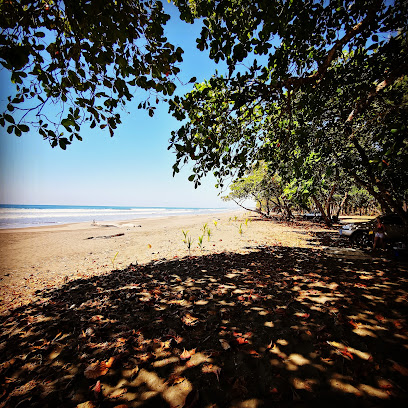
Playa Puerto Viejo
Experience the Caribbean vibe of Costa Rica at Playa Puerto Viejo, a blend of stunning beaches, vibrant culture, and lush rainforests.
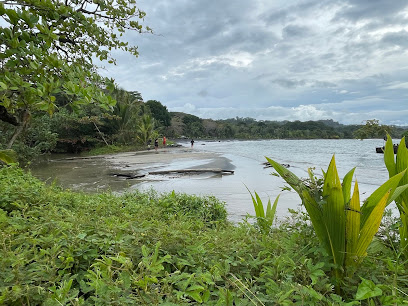
Rocking J's
Experience the vibrant, beachfront atmosphere of Rocking J's in Puerto Viejo, a legendary hostel for backpackers seeking adventure and community.

Selina Hostel Puerto Viejo
Experience vibrant culture & stunning beaches from a comfortable, community-focused base in Costa Rica's Caribbean paradise.
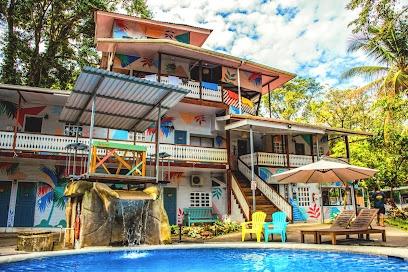
Caribeans Chocolate and Coffee
Experience the journey from bean to bar at this organic chocolate and coffee haven near Playa Cocles, Puerto Viejo.
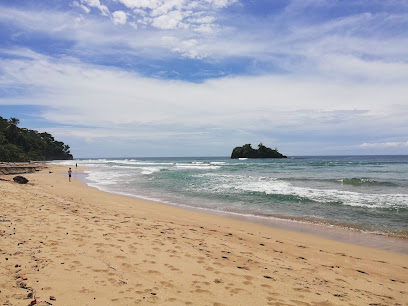
Chile Rojo
Experience vibrant Thai-Asian fusion with Caribbean flavors at Chile Rojo, a beachfront culinary gem in Puerto Viejo de Talamanca.
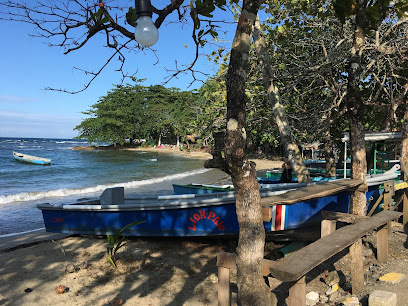
Johnny's Place
Experience the vibrant Caribbean spirit at Johnny's Place, a lively beachfront bar in Puerto Viejo with stunning views and refreshing drinks.
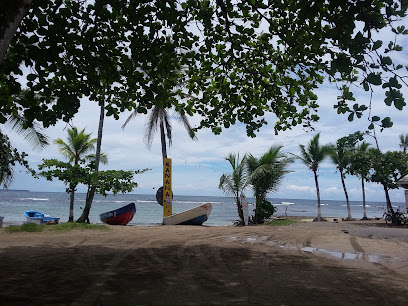
Soda Shekina
Experience authentic Costa Rican flavors at Soda Shekina in Puerto Viejo de Talamanca. Fresh, local cuisine in a vibrant, welcoming atmosphere.
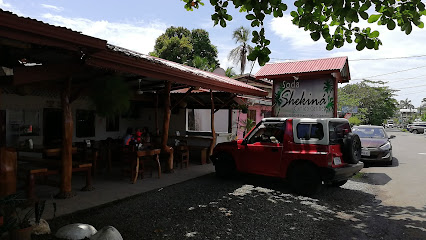
La casita de Monli Bar Restaurante
Experience fine dining with fresh seafood and local Costa Rican flavors at this charming Puerto Viejo restaurant with a vibrant Caribbean atmosphere.
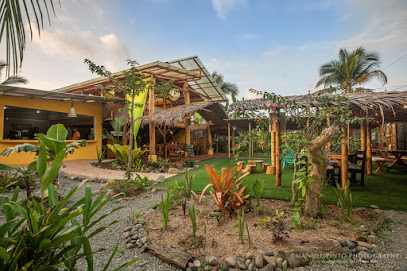
Stashu's Con Fusion
Experience the fusion of Caribbean & Asian flavors at Stashu's Con Fusion in Puerto Viejo. Fresh seafood, vegetarian options & live music await!
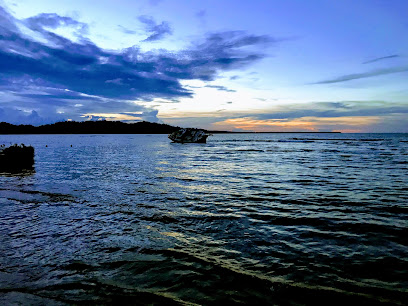
Cafe Rico
Discover a tranquil oasis in Puerto Viejo with delicious food, lush gardens, and a unique selection of used books at Cafe Rico.
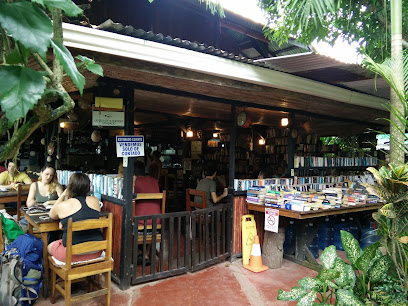
SOCA Restaurant
Experience Latin American flavors with fresh seafood and exquisite steaks at SOCA Restaurant in Puerto Viejo de Talamanca. Waterfront dining at its finest.
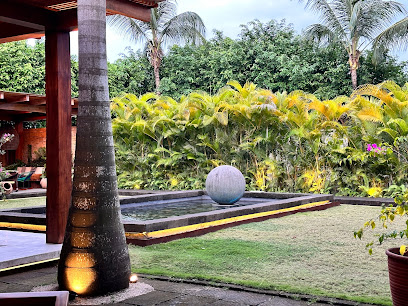
Madre Tierra
Savor the flavors of Costa Rica at Madre Tierra, a vegetarian oasis in Puerto Viejo offering fresh, local, and sustainable cuisine.
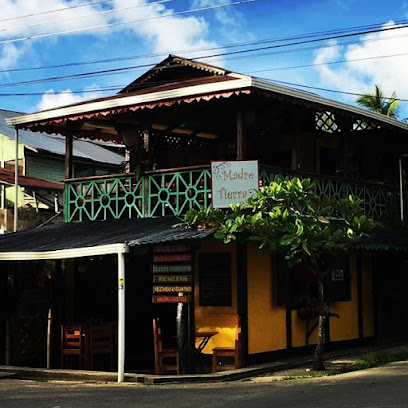
Unmissable attractions to see
Parque Nacional Cahuita
Explore the enchanting Parque Nacional Cahuita - a tropical paradise with pristine beaches, vibrant coral reefs, and diverse wildlife.
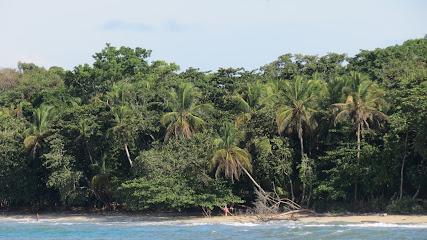
Refugio Nacional Gandoca-Manzanillo
Explore the breathtaking landscapes and rich biodiversity of Refugio Nacional Gandoca-Manzanillo, a must-visit wildlife refuge in Costa Rica's Limón Province.
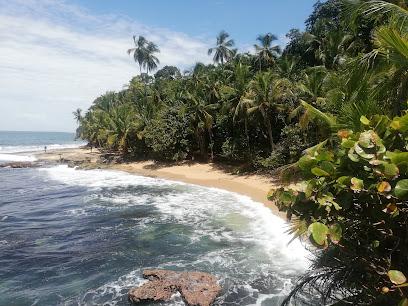
Jaguar Rescue Center
Observe Costa Rican wildlife up close at this rescue and rehabilitation center near Puerto Viejo de Talamanca.
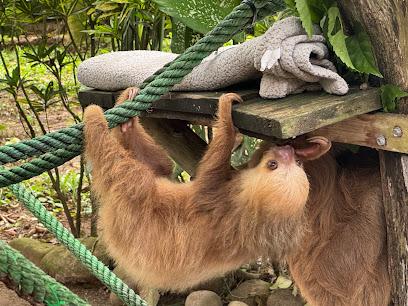
Parque Balvanero Vargas
Discover the tranquility of Parque Balvanero Vargas, a lush park in Limón Province, where nature and culture intertwine beautifully.
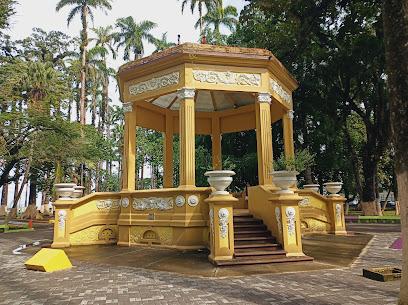
Playa Manzanillo
Discover the serene beauty of Playa Manzanillo, Costa Rica: turquoise waters, white sands, and vibrant wildlife await in this Caribbean paradise.
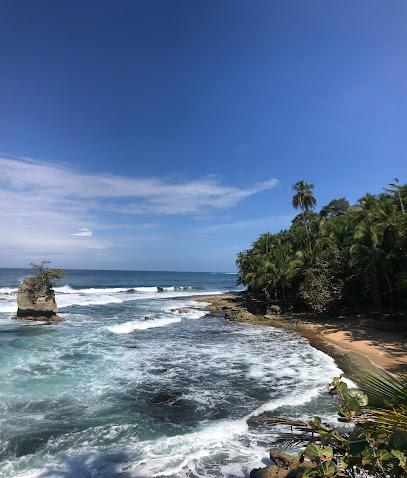
Sloth Sanctuary of Costa Rica
Experience the magic of sloths at the Sloth Sanctuary of Costa Rica, a vital wildlife rescue and educational hub in Limón Province.

Cacao Trails - Museo de Cacao
Explore the rich history and delicious world of chocolate at Cacao Trails Museum in Cahuita, Costa Rica.
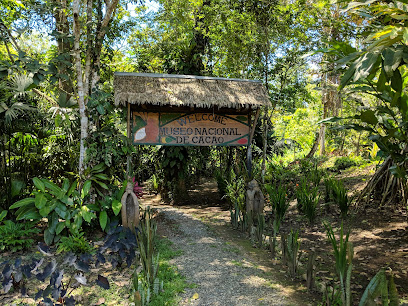
Playa Cocles
Experience the serene beauty of Playa Cocles, a must-visit beach destination in Costa Rica's Limón Province, perfect for relaxation and adventure.
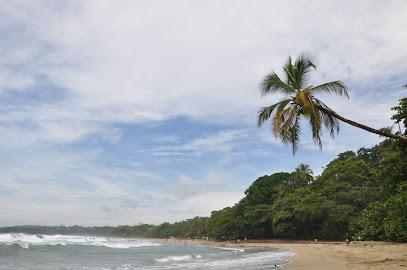
Playa Punta Uva
Discover Playa Punta Uva, Costa Rica: a serene Caribbean beach with calm waters, lush rainforest, and abundant wildlife. Perfect for relaxation and adventure.
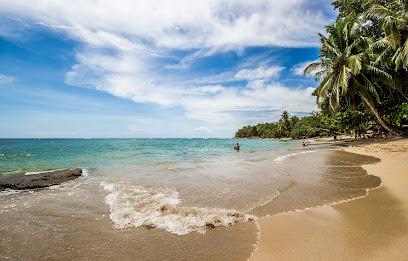
Sacred Heart Cathedral (catholic church)
Discover the architectural gem of Limón: a modern cathedral with stunning stained glass, rich history, and a peaceful atmosphere for all visitors.
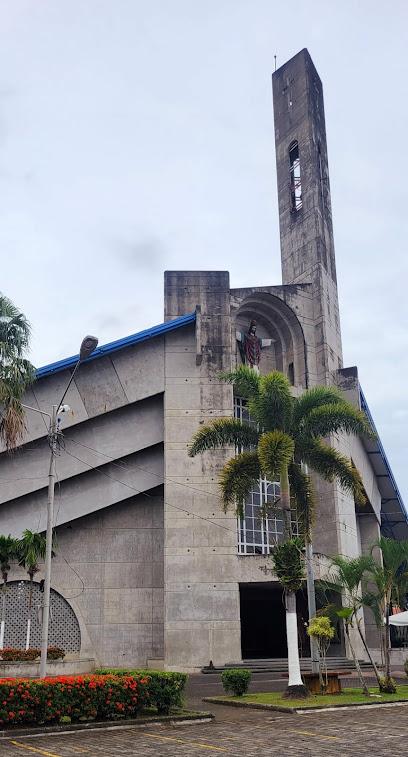
Bri Bri waterfalls
Discover the natural beauty and cultural significance of the Bri Bri Waterfalls near Puerto Viejo, Costa Rica.
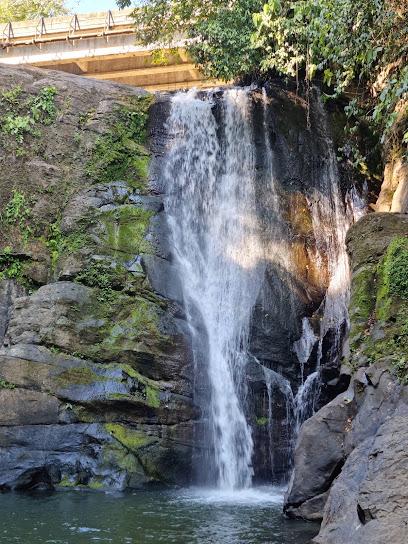
Ara Manzanillo
Explore the enchanting Ara Manzanillo, a top destination for bird watching and nature lovers in the lush landscapes of Costa Rica's Limón Province.
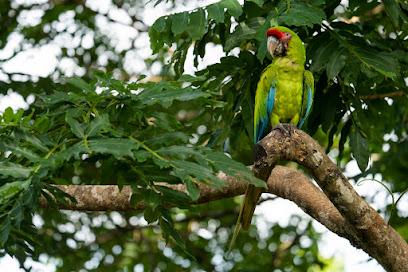
Finca la Isla Permaculture Farm, Plant Nursery and Botanical Garden
Explore a permaculture farm and botanical garden near Puerto Viejo, Costa Rica, with diverse tropical plants and sustainable practices.
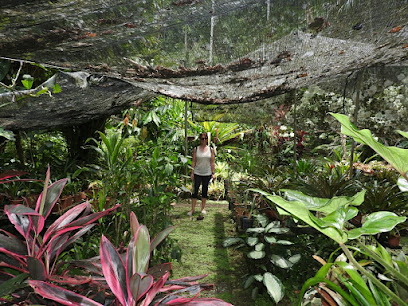
Ride The Rainforest Costa Rica
Discover the enchanting Ride The Rainforest in Costa Rica, where adventure and nature collide in stunning harmony.
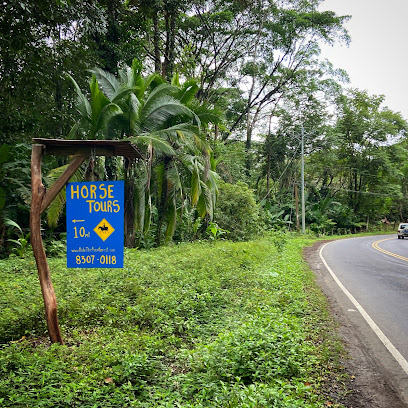
Maratopia & Tour‘s
Discover wildlife and eco-tours at Maratopia, an unforgettable animal park in Costa Rica's Limón Province. A paradise for nature lovers!

Essential places to dine
Tamara
Discover Tamara in Puerto Viejo: where Costa Rican flavors meet an inviting atmosphere for an unforgettable dining experience.
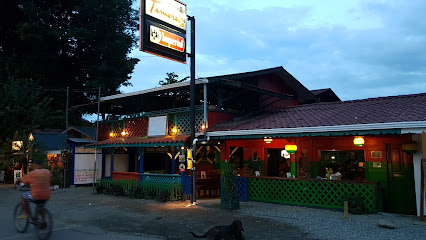
Hot Rocks
Experience interactive dining at Hot Rocks in Puerto Viejo—where you cook on hot stones and savor fresh local flavors.
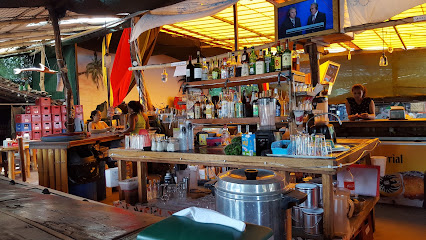
KOKi Beach Restaurant & Bar
Experience tropical dining at KOKi Beach Restaurant & Bar in Puerto Viejo – where oceanfront views meet exquisite cuisine and vibrant nightlife.
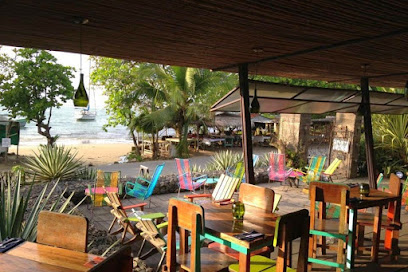
Restaurante Lidia's Place
Experience authentic Costa Rican cuisine at Restaurante Lidia's Place in Puerto Viejo de Talamanca – where fresh ingredients meet local flavors.
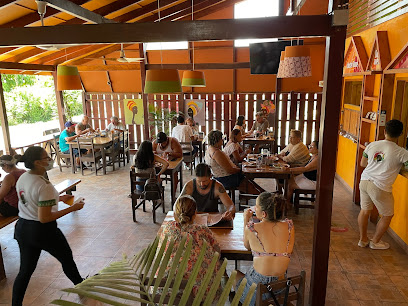
Bread & Chocolate
Discover the culinary delights at Bread & Chocolate in Puerto Viejo - where local flavors meet international cuisine in a cozy atmosphere.
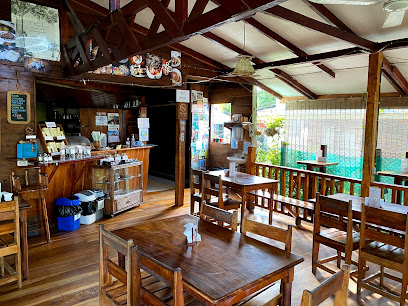
Salsa Brava Restaurante Caribeño
Experience vibrant Caribbean cuisine at Salsa Brava Restaurante Caribeño in Puerto Viejo—an unmissable culinary destination for every traveler.
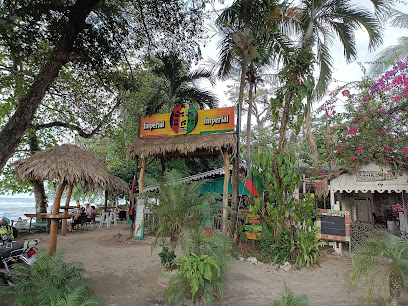
Sol del Caribe
Experience the vibrant flavors of Caribbean cuisine at Sol del Caribe in Puerto Viejo de Talamanca – where every meal is a celebration.
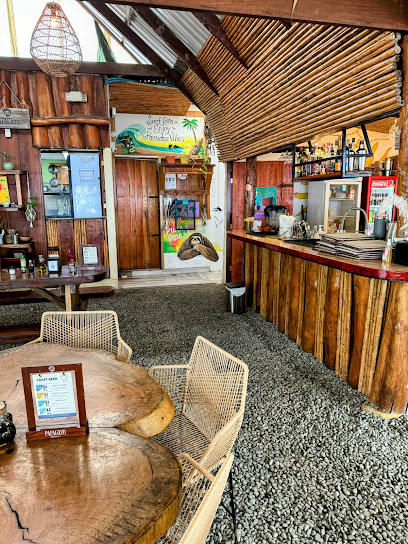
Cafe Viejo
Experience authentic Italian flavors at Cafe Viejo in Puerto Viejo de Talamanca - where every dish tells a story.
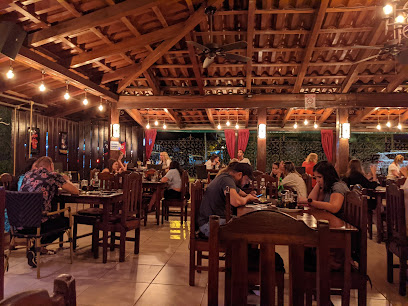
Amimodo Ristorante Pizzeria
Experience authentic Italian cuisine at Amimodo Ristorante Pizzeria in Puerto Viejo de Talamanca – where every meal feels like a vacation.
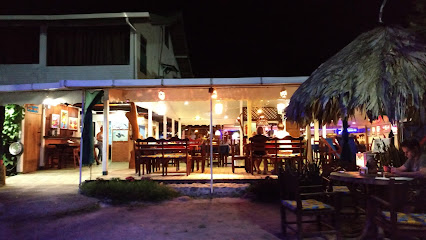
Nema
Experience authentic Costa Rican flavors at Nema in Puerto Viejo de Talamanca - where every meal tells a story.
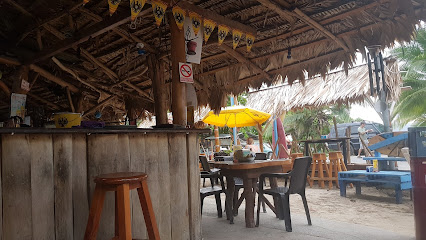
Chile Rojo
Discover the vibrant culinary scene at Chile Rojo in Puerto Viejo de Talamanca - where local flavors meet an unforgettable dining experience.
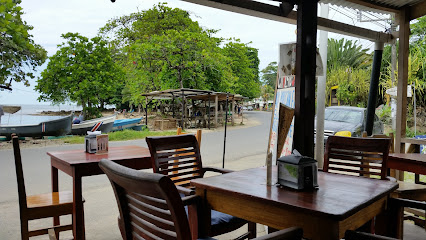
Restaurante Riquísimo
Discover authentic Costa Rican flavors at Restaurante Riquísimo in Puerto Viejo - where every dish tells a story.
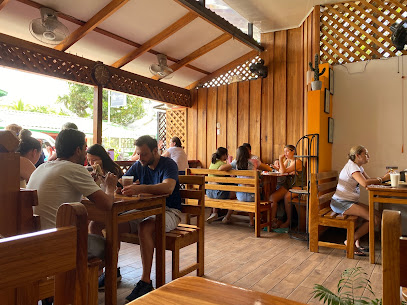
Tasty Waves Cantina
Discover delicious local cuisine at Tasty Waves Cantina in Talamanca, Costa Rica - where flavor meets relaxation in a vibrant setting.
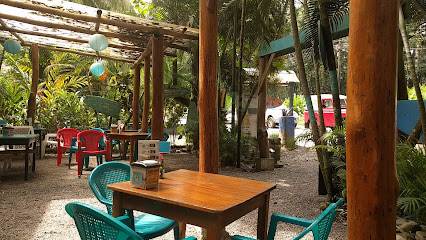
La Pecora Nera Ristorante
Experience authentic Italian cuisine at La Pecora Nera Ristorante in Puerto Viejo de Talamanca, where every dish is crafted with passion and fresh ingredients.
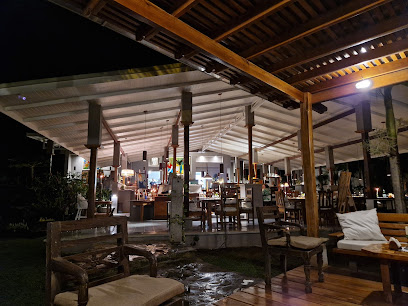
Cocomar Comida Caribeña
Experience authentic Caribbean flavors at Cocomar Comida Caribeña in Puerto Viejo de Talamanca - a family-friendly dining destination.
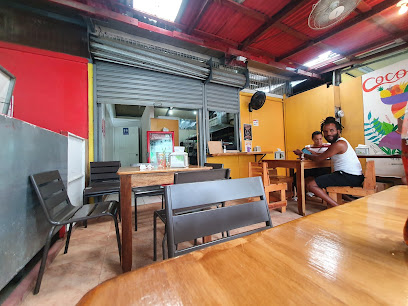
Markets, malls and hidden boutiques
Super Old Harbour
Explore local flavors and vibrant culture at Super Old Harbour, the heart of grocery shopping in Puerto Viejo de Talamanca.
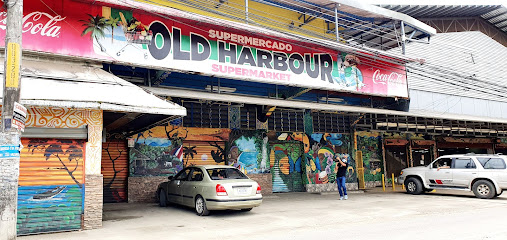
Value Mart Puerto Viejo
Explore the vibrant offerings of Value Mart Puerto Viejo, the local supermarket for fresh produce, groceries, and fine wines in the heart of Costa Rica.
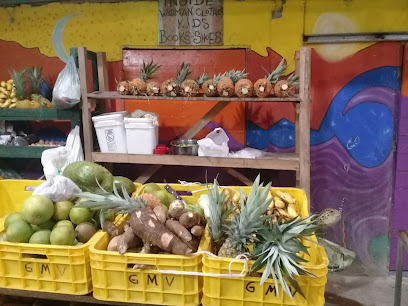
Wanderlust Puerto Viejo
Explore the vibrant styles of Costa Rica at Wanderlust Puerto Viejo, a unique clothing store offering locally crafted fashion and accessories.
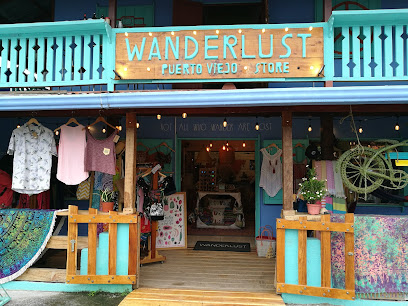
Puerto Viejo Tattoo
Discover the artistry of Puerto Viejo Tattoo, where skilled artists transform your body into a canvas of self-expression in a vibrant coastal town.
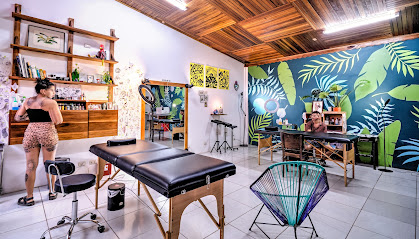
Sloth Toes
Experience the vibrant spirit of Costa Rica at Sloth Toes, where unique clothing meets local craftsmanship in Puerto Viejo.
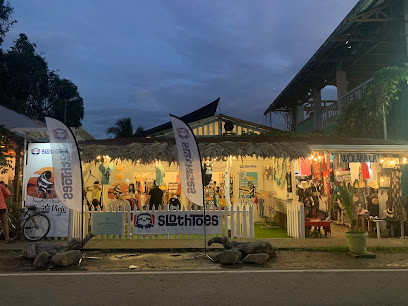
DiTown Shop
Experience the essence of surf culture and local coffee at DiTown Shop in Puerto Viejo, your go-to spot for adventure and relaxation.
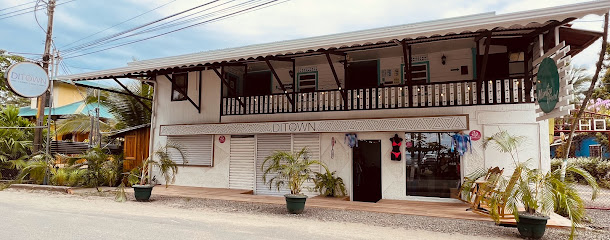
Biomercado Puerto Viejo
Explore Biomercado Puerto Viejo, your go-to destination for organic and health foods in the heart of Costa Rica's Caribbean coast.
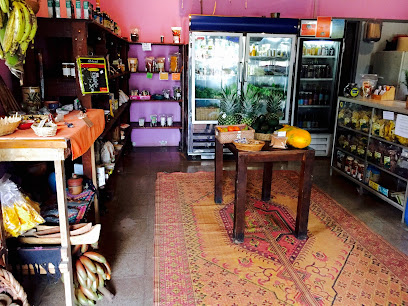
Casa Mandala
Explore unique handmade crafts and souvenirs at Casa Mandala, your gateway to Costa Rican artistry in Puerto Viejo.
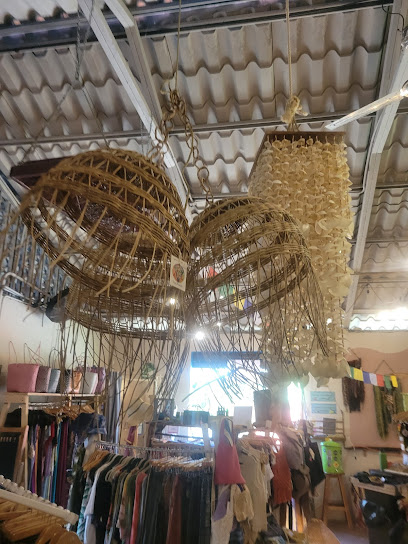
Tienda Del Mar
Explore Tienda Del Mar, where local art meets unique gifts in the heart of Puerto Viejo de Talamanca's vibrant culture.
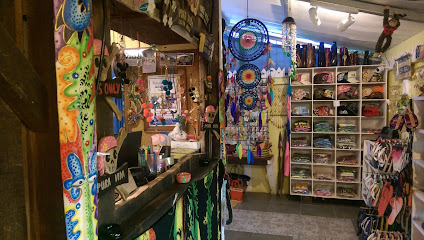
Luna May
Discover unique Caribbean fashion at Luna May, a chic clothing store in Puerto Viejo de Talamanca, reflecting local style and sustainable practices.
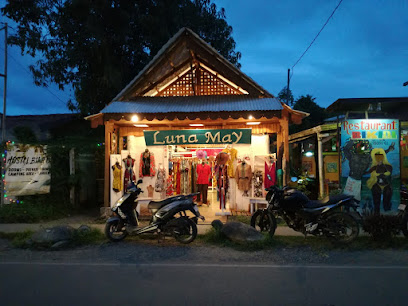
Marea Santa Store
Discover unique tropical fashion at Marea Santa Store in Puerto Viejo, where style meets the vibrant culture of Costa Rica.
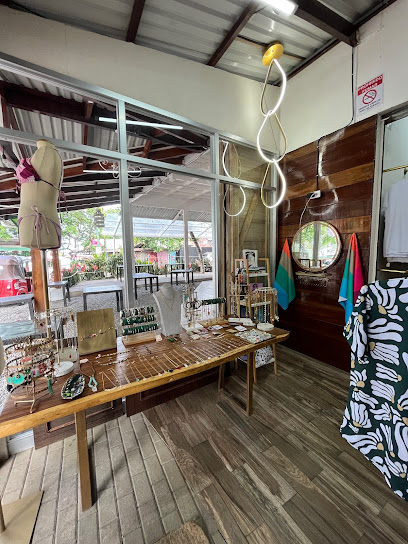
Namú: Tienda Gourmet & Orgánica
Explore the vibrant flavors of Costa Rica at Namú: Tienda Gourmet & Orgánica, a gourmet grocery and cozy café in Puerto Viejo.
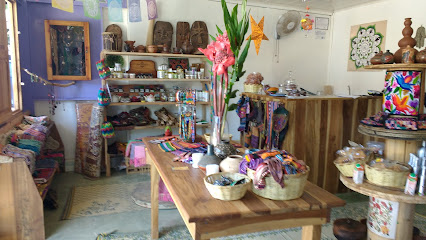
El Mercadito Fruit Shop
Experience the vibrant flavors of Costa Rica at El Mercadito Fruit Shop, your go-to destination for fresh, local produce in Puerto Viejo de Talamanca.
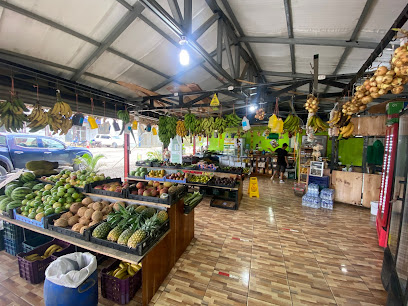
Blue Youth
Explore the vibrant fashion scene at Blue Youth in Puerto Viejo, where local creativity meets trendy apparel, perfect for every traveler.
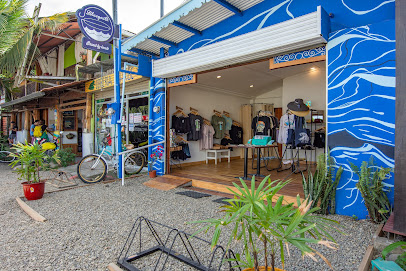
Puerto Viejo MultiCentro
Explore Puerto Viejo MultiCentro - a vibrant shopping mall offering local crafts, delicious dining, and the lively spirit of Costa Rica.
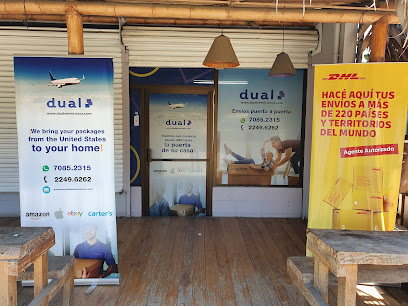
Essential bars & hidden hideouts
Tamara
Discover the vibrant flavors of Costa Rica at Tamara, a grill paradise in Puerto Viejo offering fresh, local cuisine in a lively setting.
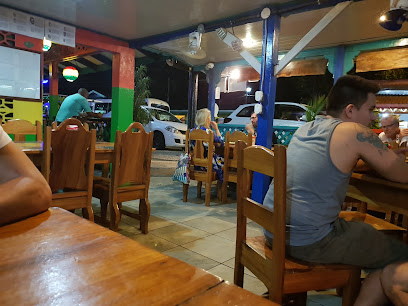
Hot Rocks
Experience vibrant flavors and lively atmosphere at Hot Rocks, the ultimate grill destination in Puerto Viejo de Talamanca.
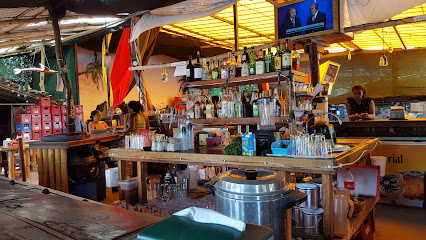
KOKi Beach Restaurant & Bar
Experience the vibrant flavors and stunning ocean views at KOKi Beach Restaurant & Bar in Puerto Viejo de Talamanca.
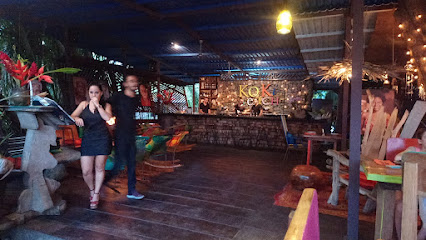
Salsa Brava Restaurante Caribeño
Experience the vibrant flavors of the Caribbean at Salsa Brava Restaurante Caribeño, a culinary gem in Puerto Viejo, Costa Rica.
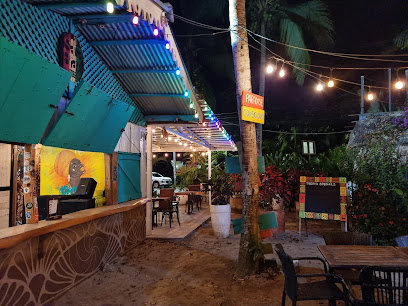
Cafe Viejo
Savor authentic Italian cuisine at Cafe Viejo, where flavorful pizzas and vibrant atmosphere meet in the heart of Puerto Viejo de Talamanca.
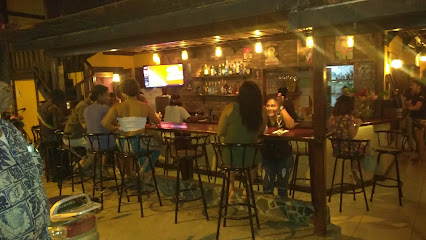
Chile Rojo
Discover the vibrant flavors of Costa Rica at Chile Rojo, a culinary haven next to Koki Beach in Puerto Viejo de Talamanca, where local ingredients shine.
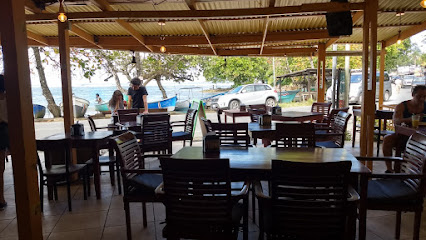
Johnny's Place
Discover the vibrant Caribbean spirit at Johnny's Place, a lively bar in Puerto Viejo with stunning views and refreshing drinks.
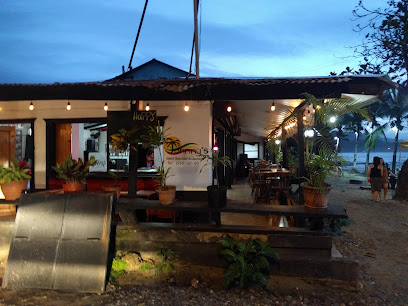
Tasty Waves Cantina
Discover the vibrant flavors and lively atmosphere at Tasty Waves Cantina, a must-visit restaurant in Talamanca, Costa Rica.
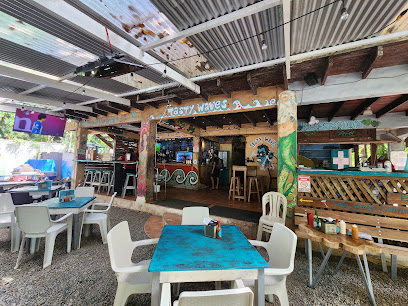
Soulsurfer
Experience the vibrant flavors of Costa Rican cuisine at Soulsurfer in Puerto Viejo de Talamanca, a must-visit for food lovers.
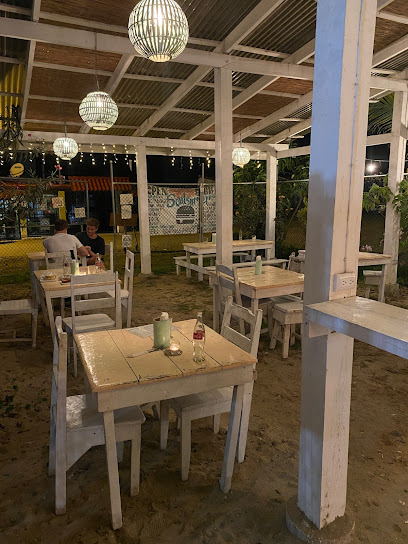
Grow Puerto Viejo
Experience the vibrant flavors of vegetarian and vegan cuisine at Grow Puerto Viejo, a beachfront bar and restaurant in Costa Rica's tropical paradise.
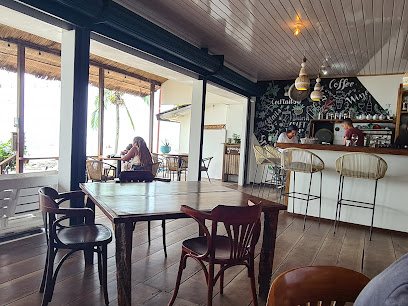
Como en mi Casa - Art Cafe
Experience the perfect blend of art and coffee at Como en mi Casa - Art Cafe in Puerto Viejo de Talamanca, where every sip inspires creativity.
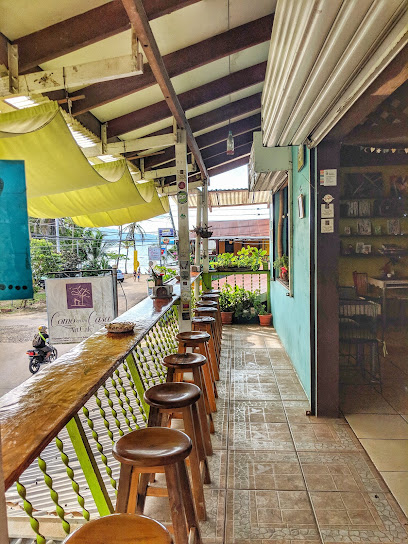
PUERTO PIRATA TIKI BAR
Discover the vibrant flavors and relaxing atmosphere of Puerto Pirata Tiki Bar, a unique culinary gem in Puerto Viejo de Talamanca.
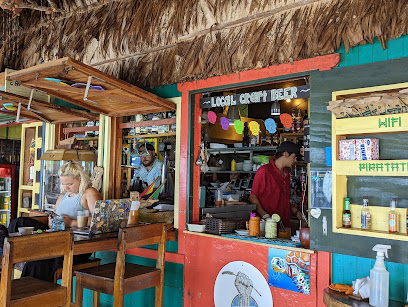
Chaman Mercadito
Experience the vibrant flavors of the Caribbean at Chaman Mercadito, Puerto Viejo's top grill bar, where every meal is a celebration of local cuisine.
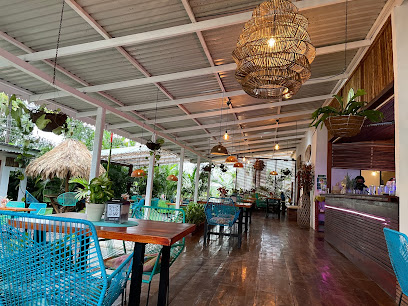
Playa Negra Brewing Beachfront Hotel
Experience the best of Costa Rica at Playa Negra Brewing Beachfront Hotel with stunning views, craft beer, and delicious dining options.
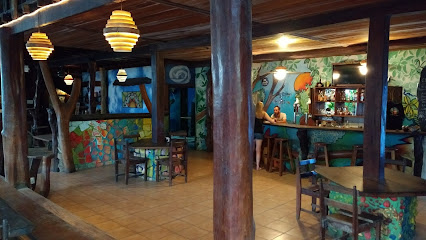
Local Phrases
-
- HelloHola
[oh-lah] - GoodbyeAdiós
[ah-dyohs] - YesSí
[see] - NoNo
[noh] - Please/You're welcomePor favor/De nada
[por fah-vor/de nah-dah] - Thank youGracias
[grah-syahs] - Excuse me/SorryPerdón/Lo siento
[pehr-dohn/loh syehn-toh] - How are you?¿Cómo estás?
[koh-moh ehs-tahs] - Fine. And you?Bien. ¿Y tú?
[byen. ee too] - Do you speak English?¿Hablas inglés?
[ah-blahs een-glehs] - I don't understandNo entiendo
[noh ehn-tyen-doh]
- HelloHola
-
- I'd like to see the menu, pleaseMe gustaría ver el menú, por favor
[meh goos-tah-ree-ah vehr ehl meh-noo, por fah-vor] - I don't eat meatNo como carne
[noh koh-moh kahr-neh] - Cheers!¡Salud!
[sah-loohd] - I would like to pay, pleaseMe gustaría pagar, por favor
[meh goos-tah-ree-ah pah-gahr, por fah-vor]
- I'd like to see the menu, pleaseMe gustaría ver el menú, por favor
-
- Help!¡Ayuda!
[ah-yoo-dah] - Go away!¡Vete!
[veh-teh] - Call the Police!¡Llama a la Policía!
[yah-mah ah lah poh-lee-see-ah] - Call a doctor!¡Llama a un médico!
[yah-mah ah oon meh-dee-koh] - I'm lostEstoy perdido
[ehs-toy pehr-dee-doh] - I'm illEstoy enfermo
[ehs-toy ehn-fehr-moh]
- Help!¡Ayuda!
-
- I'd like to buy...Me gustaría comprar...
[meh goos-tah-ree-ah kohm-prahr...] - I'm just lookingSólo estoy mirando
[soh-loh ehs-toy meer-ahn-doh] - How much is it?¿Cuánto cuesta?
[kwan-toh kwehs-tah] - That's too expensiveEso es demasiado caro
[eh-soh ehs deh-mah-syah-doh kah-roh] - Can you lower the price?¿Puedes bajar el precio?
[pweh-dehs bah-har ehl pree-syoh]
- I'd like to buy...Me gustaría comprar...
-
- What time is it?¿Qué hora es?
[keh oh-rah ehs] - It's one o'clockEs la una
[ehs lah oo-nah] - Half past (10)Y media (10)
[ee meh-dyah (deez)] - MorningMañana
[mah-nyah-nah] - AfternoonTarde
[tahr-deh] - EveningNoche
[noh-cheh] - YesterdayAyer
[ah-yehr] - TodayHoy
[oy] - TomorrowMañana
[mah-nyah-nah] - 1Uno
[oo-noh] - 2Dos
[dohs] - 3Tres
[trehs] - 4Cuatro
[kwah-troh] - 5Cinco
[seen-koh] - 6Seis
[says] - 7Siete
[syeh-teh] - 8Ocho
[oh-choh] - 9Nueve
[nweh-veh] - 10Diez
[dyehs]
- What time is it?¿Qué hora es?
-
- Where's a/the...?¿Dónde está...?
[dohn-deh ehs-tah] - What's the address?¿Cuál es la dirección?
[kwal ehs lah dee-rehk-syon] - Can you show me (on the map)?¿Puedes mostrarme (en el mapa)?
[pweh-dehs mohs-trar-meh (ehn ehl mah-pah)] - When's the next (bus)?¿Cuándo es el próximo (autobús)?
[kwan-doh ehs ehl proh-ksee-moh (ow-toh-boos)] - A ticket (to ....)Un boleto (a ...)
[oon boh-leh-toh (ah ...)]
- Where's a/the...?¿Dónde está...?
History of Puerto Viejo
-
Long before the arrival of Europeans, Puerto Viejo was inhabited by the indigenous Bribri and Cabécar people. These groups thrived in the lush, biodiverse environment, relying on the abundant natural resources for sustenance and trade. They developed intricate social structures and spiritual practices deeply connected to the land and its cycles.
-
Christopher Columbus arrived on Costa Rican shores in 1502 during his fourth voyage. Although he did not visit the specific area of Puerto Viejo, his presence marked the beginning of European interest and subsequent colonization. The Spanish focused their attention on the central valley, leaving the Caribbean coast relatively isolated for several centuries.
-
In the late 19th century, Puerto Viejo began to see a significant influx of Afro-Caribbean immigrants, primarily from Jamaica, who arrived to work on the construction of the railroad connecting the coastal region to the central highlands. This migration brought a rich cultural tapestry, including reggae music, Creole language, and Caribbean cuisine, which continue to influence the cultural landscape of Puerto Viejo today.
-
The early 20th century saw the rise of the banana industry in the region, driven by American companies like the United Fruit Company. Puerto Viejo became a hub for banana plantations, which dramatically altered the local economy and environment. However, diseases like Panama Disease led to a decline in banana production, causing economic hardship for the area.
-
Starting in the late 20th century, Puerto Viejo began to transform into a popular tourist destination, thanks to its stunning beaches, vibrant nightlife, and unique cultural blend. Eco-tourism also gained traction, focusing on the preservation of the region’s rich biodiversity. This shift brought economic revitalization but also challenges related to sustainable development and cultural preservation.
-
Today, Puerto Viejo is a bustling coastal town known for its laid-back vibe, diverse population, and commitment to environmental sustainability. The community actively works to balance the demands of tourism with the need to protect its natural and cultural heritage. Initiatives like local conservation projects and cultural festivals help to maintain the town's unique identity.
Puerto Viejo Essentials
-
Puerto Viejo is located on the Caribbean coast of Costa Rica in the Limón province. The nearest international airport is Juan Santamaría International Airport in San José, approximately 210 kilometers away. From San José, you can take a direct bus operated by the company MEPE, which takes around 4 to 5 hours. Alternatively, you can rent a car and drive, or arrange private transportation through various shuttle services.
-
Within Puerto Viejo, the most common forms of transportation are bicycles and taxis. Renting a bicycle is an excellent way to explore the town and nearby beaches. Taxis are available but can be more expensive. For longer trips, there are local buses that connect Puerto Viejo to nearby towns such as Cahuita and Manzanillo. Renting a car is also an option if you plan to explore more remote areas.
-
The official currency of Costa Rica is the Costa Rican Colón (CRC). US dollars are widely accepted, but it's advisable to carry local currency for smaller establishments. Credit cards are accepted in most hotels, restaurants, and shops, but it's wise to have cash on hand for smaller purchases and tips. ATMs are available in Puerto Viejo, but it's a good idea to withdraw sufficient cash in larger towns as a backup.
-
Puerto Viejo is generally safe for tourists, but it's important to take standard precautions. Avoid walking alone at night, especially in secluded areas. Be cautious with your belongings in crowded places. Some areas, like the outskirts of the town and certain beaches, have higher crime rates targeting tourists. Always stay vigilant and aware of your surroundings.
-
In case of emergency, dial 911 for immediate assistance. Puerto Viejo has a local clinic for minor health issues, but for more serious medical needs, you may need to travel to Limón or San José. It is recommended to have travel insurance that covers medical emergencies. Pharmacies are available in the town for over-the-counter medications.
-
Fashion: Do dress casually and comfortably, but avoid wearing overly revealing clothing in town. Religion: Do respect local customs and traditions. While Costa Rica is predominantly Catholic, the Caribbean coast has a mix of cultures and religions. Public Transport: Do be respectful and offer your seat to elderly passengers. Don't eat or drink on public transport. Greetings: Do greet people with a friendly 'Hola' or a handshake. Eating & Drinking: Do try local dishes like 'rice and beans'. Don't refuse hospitality, as it is considered impolite.
-
To experience Puerto Viejo like a local, visit the local markets where you can buy fresh produce and handmade crafts. Engage with locals, who are often friendly and willing to share stories about the town's history and culture. Don't miss the Cahuita National Park and the Gandoca-Manzanillo Wildlife Refuge for stunning natural beauty. Try to learn a few phrases in Spanish to enhance your interactions with locals.
Trending Landmark in Puerto Viejo
Nearby Cities to Puerto Viejo
-
Things To Do in Bocas del Toro
-
Things To Do in Volcan
-
Things To Do in Boquete
-
Things To Do in David
-
Things To Do in San Jose
-
Things To Do in Manuel Antonio
-
Things To Do in Jaco
-
Things To Do in La Fortuna
-
Things To Do in Monteverde
-
Things To Do in Guanacaste
-
Things To Do in Liberia
-
Things To Do in Colon
-
Things To Do in Chitre
-
Things To Do in Portobelo
-
Things To Do in Playa Flamingo









